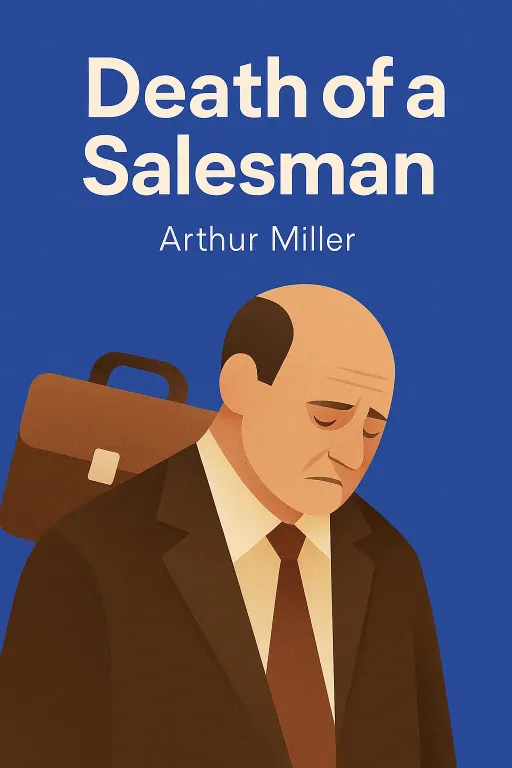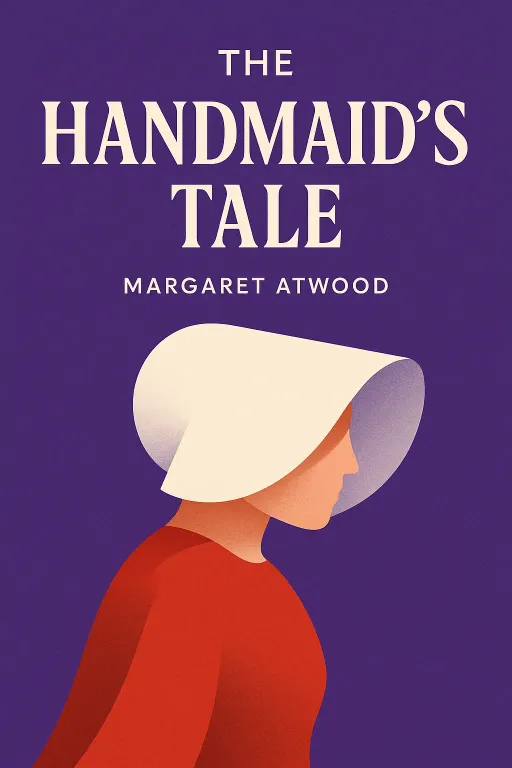
Death of a Salesman
9 minIntroduction
Narrator: An old man arrives home, exhausted. He carries two heavy sample cases, the tools of a life spent on the road, but he couldn't complete his trip. The city has closed in around his small house, its towering apartment buildings blocking out the sun, a perfect metaphor for his own life. He can't reconcile the man he is with the man he always dreamed he would be. This man is Willy Loman, and in his own words, he is "tired to the death." His mind is beginning to slip, blending the disappointments of the present with idealized memories of a past that may have never truly existed. This profound sense of failure, this chasm between aspiration and reality, is the haunting landscape explored in Arthur Miller’s Pulitzer Prize-winning play, Death of a Salesman. It’s a story that dissects the anatomy of a tragedy, revealing how one man can be crushed by the immense weight of the American Dream.
The Corrosive Power of a Distorted Dream
Key Insight 1
Narrator: At the heart of Willy Loman’s tragedy is his warped perception of the American Dream. He believes success isn't built on hard work, innovation, or genuine skill, but on being "well-liked." For Willy, personality is the ultimate currency. He raised his sons, Biff and Happy, on this philosophy, convinced that their good looks and charm would guarantee them the world. This belief system proves to be a fragile foundation, one that crumbles under the pressures of the modern world.
This is starkly illustrated in Willy's devastating encounter with his young boss, Howard Wagner. Willy, now in his sixties and unable to handle his travel route, goes to Howard to ask for a non-traveling job in New York. He enters the office not as a beggar, but as a man who believes his decades of loyalty to the company, and his personal relationship with Howard’s father, should count for something. But Howard isn't listening. He's completely captivated by a new gadget, a wire recorder, and forces Willy to listen to recordings of his children. The machine represents a new, impersonal era of business, one that has no place for Willy’s old-fashioned ideals. Willy pleads, recounting the story of Dave Singleman, a legendary salesman who could make a living from his hotel room with just a phone call because he was so well-known and respected. But to Howard, this is just an old man's rambling. He coldly tells Willy there’s no position for him and, in a moment of brutal finality, fires him. Willy is left standing alone, his life's work dismissed by a man more interested in a machine than in human loyalty. His dream, based on being liked, was no match for a world that valued only the bottom line.
The Sins of the Father and the Burden of Legacy
Key Insight 2
Narrator: While Willy’s professional life is collapsing, the true source of his family’s pain stems from a deep, personal betrayal. The play’s most fractured relationship is between Willy and his older son, Biff. In Willy’s memories, Biff is a high school football star, a golden boy destined for greatness. But in the present, Biff is a 34-year-old drifter, unable to hold a job, tormented by a sense of purposelessness. The reason for this disconnect is a single, shattering event that the play holds back until its climax.
Years earlier, a teenage Biff, full of hope and adoration for his father, travels to Boston. He has just failed a crucial math class and needs Willy to talk to the teacher, confident his charismatic father can fix anything. He knocks on his father's hotel room door, but Willy is hesitant to let him in. When the door finally opens, Biff’s world collapses. A woman emerges from the bathroom, laughing. It becomes clear that Willy is having an affair. The final, devastating blow comes when Biff sees that Willy has given this woman the new silk stockings he was meant to bring home to his wife, Linda.
In that moment, Willy the hero dies in Biff’s eyes. The man who preached about character and being well-liked is revealed as a "phony little fake." Biff gives up on summer school, burns his prized University of Virginia sneakers, and abandons his future. This single act of infidelity poisons everything. It’s not just an affair; it’s the moment the lie at the center of the Loman family is exposed, creating a wound between father and son that never heals and derailing Biff’s life permanently.
The Hallucination of the Past
Key Insight 3
Narrator: To understand Willy’s unraveling, Arthur Miller breaks the conventional rules of time. The play’s structure mirrors Willy’s fractured mind, as he slips uncontrollably between the grim present and a romanticized past. These are not simple flashbacks; they are vivid, intrusive hallucinations. The most significant of these are his conversations with his long-dead older brother, Ben.
Ben is a phantom of mythic success. He is everything Willy is not: adventurous, ruthless, and fantastically wealthy. Ben’s mantra, which haunts Willy, is a simple, brutal story: "When I was seventeen I walked into the jungle, and when I was twenty-one I walked out. And by God I was rich." This tale of conquering the wilderness and emerging with diamonds becomes Willy’s gospel, a symbol of the quick, tangible success he has never known. In his moments of deepest doubt, Willy summons Ben for guidance. Ben represents a path not taken, a world of high-risk, high-reward masculinity that Willy, stuck selling on commission, can only dream of. These hallucinations show a man so lost in his present failures that he can only seek advice from a ghost, further detaching him from his family and from reality itself.
The Tragedy of Being Worth More Dead Than Alive
Key Insight 4
Narrator: The play hurtles towards its devastating conclusion in a final, explosive confrontation. Biff, determined to force his family to face the truth, lays a rubber hose on the kitchen table—the proof of Willy’s secret suicide attempts. He tries to shatter the family’s illusions once and for all, crying out that he’s not a leader of men and Willy is not a great salesman. He yells, "I'm a dime a dozen, and so are you!" In a moment of raw emotion, Biff breaks down sobbing in his father's arms.
But Willy, in his broken state, cannot see this for what it is: a plea for honesty and acceptance. Instead, he misinterprets Biff’s tears as a sign of love and admiration. "Isn't that remarkable?" he whispers, "Biff—he likes me!" In his deluded mind, a terrible and tragic equation forms. He believes that Biff’s love has finally freed him to do what’s necessary. His life insurance policy is worth twenty thousand dollars—a concrete sum, a final number on a sales sheet. He can finally give his boy a magnificent start. As the ghost of Ben whispers encouragement—"The jungle is dark but full of diamonds, Willy"—Willy Loman gets into his car to make one final, fatal sale, convinced that he is worth more to his family dead than alive.
Conclusion
Narrator: The single most important takeaway from Death of a Salesman is that a dream, when pursued without honesty or self-awareness, becomes a destructive and deadly force. Willy Loman's tragedy wasn't his failure to achieve the American Dream; it was his inability to recognize his own, more authentic worth, the value he had as a husband, a father, and a man who was good with his hands. He was so blinded by a fantasy of success that he couldn't see the love and reality right in front of him.
At Willy's sparsely attended funeral, his son Biff finally understands this, stating simply, "He had the wrong dreams. All, all, wrong." But his friend Charley offers a different, more compassionate view: "Nobody dast blame this man. A salesman is got to dream, boy. It comes with the territory." The play leaves us caught between these two truths, forcing us to ask a difficult question. Is the dream itself the problem, or is it the refusal to wake up when that dream becomes a nightmare?









